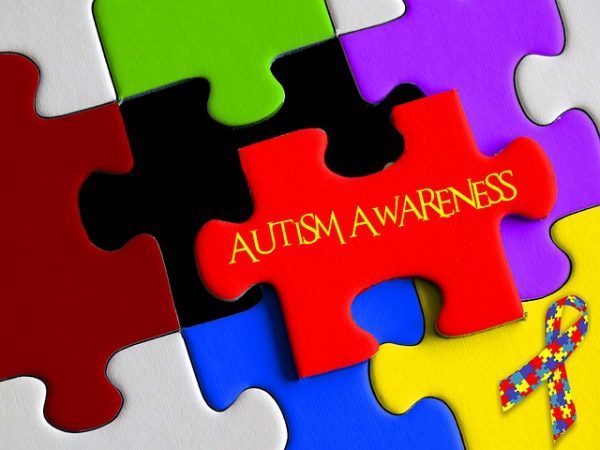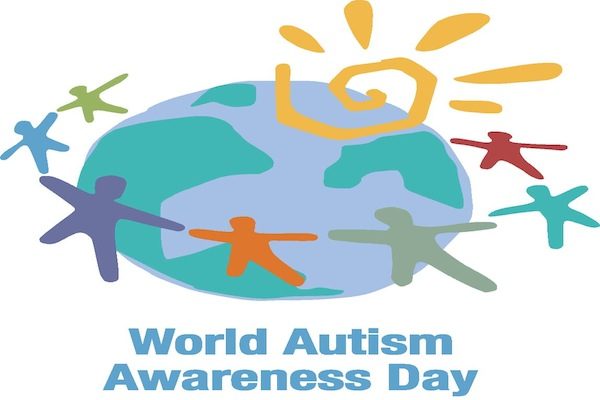“The most interesting people you’ll find are ones that don’t fit into your average cardboard box. They’ll make what they need, they’ll make their own boxes.” Dr. Temple Grandin knows what she is talking about. A professor of Animal Science at Colorado State University, she is also a prominent author and speaker on both autism and animal behavior. She didn’t speak until she was almost three. This was fortunately corrected as she received speech therapy in her early years. And yet, even then, she was considered weird and teased and bullied in high school. But what is autism really? Today, on World Autism Day, let’s find out all about it and how we can create autism awareness everywhere.
What is Autism and what are the red flags?
Taken from the Autism Speaks website, Autism, or autism spectrum disorder refers to a range of conditions characterized by challenges with social skills, repetitive behaviors, speech and nonverbal communication. We now know that there is not one autism but many types, caused by different combinations of genetic and environmental influences. The term “spectrum” reflects the wide variation in challenges and strengths possessed by each person with autism.
This disorder usually manifests by the ages of 2-3 years. Sometimes, it can even show up in a child of fewer than 18 months. However, if caught early, some of these developmental delays can be addressed and possibly corrected.
Goa has a lot of autistic children. While this is nothing to be ashamed of, parents might still be unsure and sometimes even embarrassed to bring these children out of the house. A lot of people with autistic children are also quite ignorant about the condition. Perhaps there isn’t enough autism awareness being created. However, in Goa, we do have Sethu, which is an NGO that works with children with developmental, behavioral, emotional and educational challenges. Sethu is headed by Dr.Nandita De Souza and her team and they all work tirelessly to bring about autism awareness. And speaking of autism awareness, let’s see what kinds of red flags the disorder throws up. It always helps to know more.

Red flags for autism awareness
It isn’t easy dealing with autistic children. Symptoms don’t always show up at the ordained time. The strength and severity of these symptoms or red flags also vary. Autism may show up in children as young as a few months old. In other cases, a year or two could pass before parents become aware that their child is different from his or her peers. It really takes a lot of love and patience to care for an autistic child.
Possible signs of autism in babies and toddlers
- No social smiles or other warm, joyful expressions directed at people (6 months)
- Limited or no eye contact (6 months)
- No sharing of vocal sounds, smiles or other nonverbal communication (9 months)
- No babbling (12 months)
- There isn’t any use of gestures to communicate (e.g. pointing, reaching, waving etc.) (12 months)
- They don’t respond to their name when called (12 months)
- They don’t speak (16 months)
- By 24 months, no meaningful, two-word phrases
- Any loss of any previously acquired speech, babbling or social skills
While autism usually manifests in early years, it’s not unusual for adults to be autistic too. Some may not have been diagnosed for various reasons but they still show signs that point to the disorder. These may or may not include:
Possible signs of autism at any age
- Avoids eye contact and prefers to be alone
- Struggles with understanding other people’s feelings
- Remains nonverbal or has delayed language development
- Repeats words or phrases over and over (echolalia)
- Gets upset by minor changes in routine or surroundings
- Has highly restricted interests
- Performs repetitive behaviors such as flapping, rocking or spinning
- Has unusual and often intense reactions to sounds, smells, tastes, textures, lights and/or colors
So if you find that your child is exhibiting any of these symptoms, get them to a centre like Sethu for a proper diagnosis. The key here is autism awareness. While it’s great to have an annual event like World Autism Day, we need to keep creating autism awareness, today and every day. Check out the link for options on how to go about creating autism awareness.
Information credit – Autism Speaks website
ItsGoa/APR/KDGP


